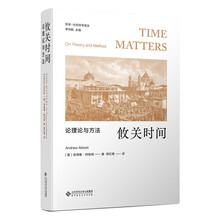From this standpoint, we have to take very seriously the notion.., that space and time are not simply constituted by but are also constitutive of social processes. This is also true for the urban. The urban and the city are not simply constituted by social processes, they are constitutive of them. We have to understand that dialectic in order to appreciate how urbanization is constructed and produces all of these thing-like configurations which we call cities -- with political orgaization, social organization and physical structures. We have to appreciate better the centrality of that moment of urban construction, which is fundamental to how the social process operates. In exactly the same way, we have to take seriously the idea of that moment of construction of spatio-temporality, which then defines how the system itself will operate. From this standpoint, it is possible to reposition the urban as fundamental in contemporary debates. At the same time we transform our notion of urbanization. We would abandon the view of the urban as simply a site or a container of social action in favour of the idea that it is, in itself, a set of conflictual heterogeneous processes which are producing spatio-temporalities as well as producing things, structures and permanencies in ways which constrain the nature of the social process. Social processes, in giving rise to things, create the things which then enhance the nature of those particular social processes.
One outcome may be that we find ourselves stuck for a very long time with a particular kind of social process. An example would be nuclear power. Once nuclear power stations exist all sorts of things follow. If a nuclear power station goes on the blink, can you imagine calling a town meeting to discuss democratically what to do about it? The answer is no, you cant. In these circumstances, we are immediately driven back to the realms of expert knowledge and expert decision-making. So a thing has been created which for as long as it lasts -- which is going to be a very long time -- is by its very nature going to be basically undemocratic in terms of the sort of social process that supports it. Here is a social process that has defined a certain spatio- temporality for the next 10,000 years, which in tum implies perpetuation of a certain kind of social order if it is not to unravel in highly destructive ways.
展开










